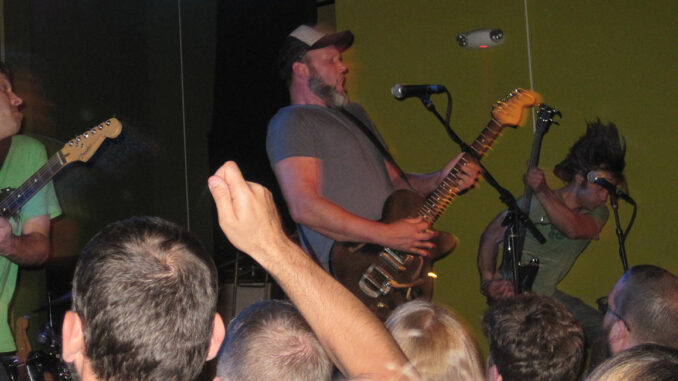
It all began when Mac McCaughan, a young musician who had moved to Durham as a teenager and spent his college years between Colombia University and Chapel Hill, started a band called Chunk with his then-girlfriend, bassist Laura Ballance. The band became Superchunk, which lit the fuse for Merge Records. That was 35 years ago, and today, Merge is easily one of the country’s most influential independent music labels. At a time when DIY meant doing it yourself without the internet, streaming platforms, social media and modern recording technology, the term “indie” carried a more punk-like ethos and hadn’t yet been fabricated and co-opted going the way of “grunge.”
In the 1980s, North Carolina became known as a breeding ground for music. The “jangle pop” sound, popular on college radio, was dominated by bands like The dB’s, led by Peter Holsapple and Chris Stamey from Winston-Salem. Around the same time, producer Mitch Easter worked on records for renowned “alternative” groups such as R.E.M. and Pavement. By the early 1990s, Chapel Hill and the surrounding area were seen as “the next Seattle,” with McCaughan and Merge Records evolving from making cassettes to signing a growing number of artists.
Some scholars among the highest echelons of independent music claim more than one musical renaissance has occurred in North Carolina. College radio or “left of the dial” stations ushered in a new era of independent music, authenticity and a true-to-form attitude. Record stores like Schoolkids and venues such as Cat’s Cradle in Carrboro and the Village Underground in Raleigh served as incubators for the state’s exploding independent music scene. In the center of it all, Merge Records thrived.

“I think that a few things had fed into the great music scenes in N.C.: a geographical point between Washington, D.C., and Atlanta, lots of bands came through and played here even before it was known as a musical hotspot,” McCaughan said. “Universities attract young people and want record stores, clubs and bars; universities also are home to alternative radio stations like WXYC, WXDU, WKNC and WUAG.”
A simple principle powered the label’s expansion and ascension to legendary status by signing bands they liked and knew, not bands that moved more product — songs over sound. Indie darlings The Magnetic Fields, Chapel Hill’s Polvo, and Lambchop, a collective out of Nashville anchored by Kurt Wagner, joined the Merge label.
“One uniting feature of people making records on Merge is that they tend to be artists making music because that’s who they are; they would be writing songs and making music whether they were on a label or not,” McCaughan said. “We’ve also always valued songs over ‘a sound’ because I think songs outlive recording trends or guitar sounds.”
As the label grew and its reputation for nurturing independent artists spread, success on a larger scale followed. McCaughan was introduced to a band from Montreal that was rising in popularity: Arcade Fire. Their 2010 record, “The Suburbs,” released on Merge, debuted at No. 1 on the Billboard charts and won three Grammy Awards. While garnering awards and status, the Durham label serves North Carolina and the Triangle’s music scene, promoting local artists like Hiss Golden Messenger, Rosali and H.C. McEntire with a platform to reach new generations of audiences.
“I think the fact that we started when we did — a time when a small 7-inch release could garner music reviews, allow you to book a tour and get your attention in a record store — has a lot to do with our survival,” McCaughan said. “We made a lot of fans back then who stayed with us.”
Merge Records is celebrating 35 years by hosting a summer music festival in Carrboro from July 24-27 as a thank-you to their loyal artists and fans. The four-day event will showcase the label’s history with bands from Merge’s humble beginnings to its latest acts. Fans can expect “more bands than they can count, hearing songs they’ve known for a long time and hopefully having their minds blown by artists they’ve not heard before. Also, it will be sweaty.” McCaughan said.

